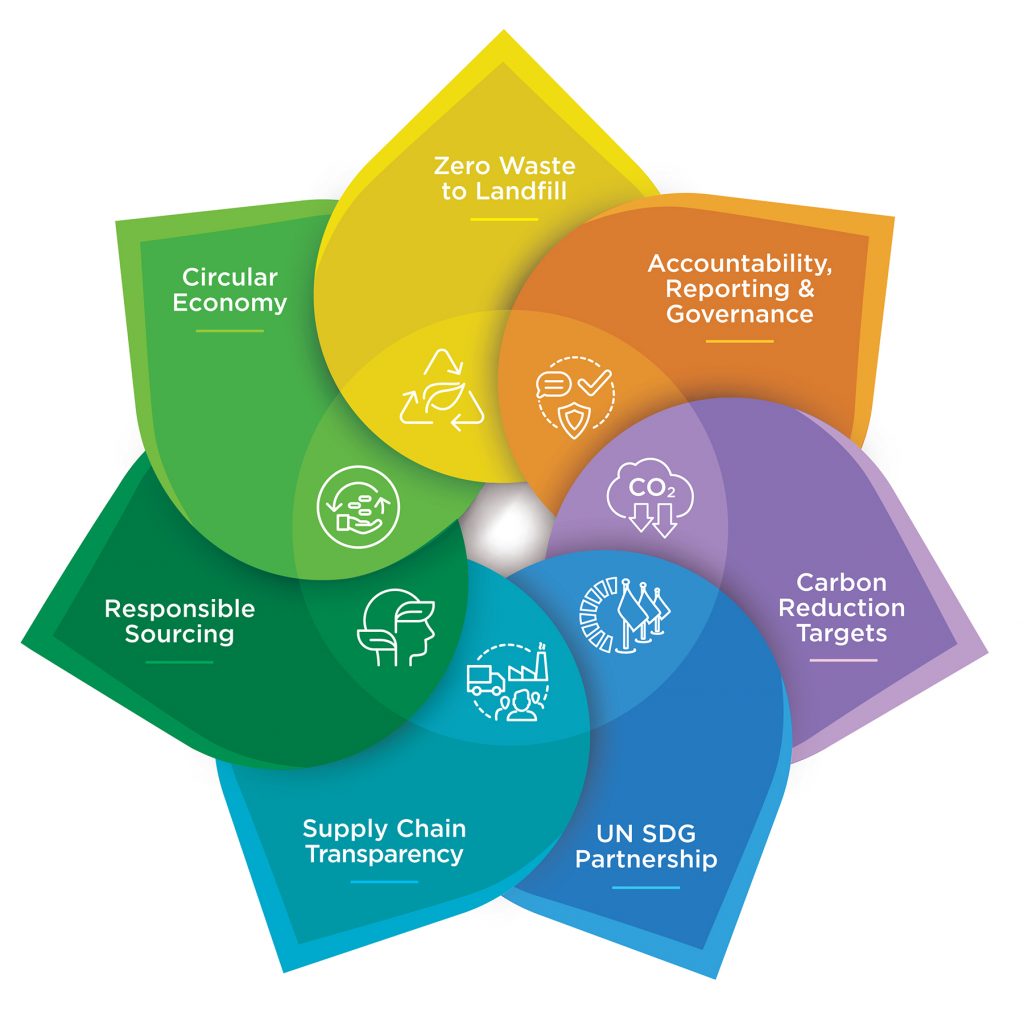Essex Furukawa and its Vision 2030 program has given further definition to its holistic approach in achieving a sustainable future to include seven petals that create specific and measurable action items that will help measure the successes as well as identify opportunities for improvement within the organization.
The seven petals include Zero Waste to Landfill; Circular Economy; Responsible Sourcing; Supply Chain Transparency; United Nations Sustainable Development Goals (UN SDG) Partnership; Carbon Reduction Targets, as well as Accountability, Reporting, and Governance commitments.

For details on these seven petals and our overall sustainability efforts in support of Vision 2030, visit our Sustainability page.
As a corporation, Essex Furukawa places a high value on sustainability and environmental conservation. Our compliance to multiple environmental directives and regulations should be a testimony to our commitment. From substance control to our reel return program, re-usable plastic pallets or magnet wire recycling, Essex Furukawa employees and facilities work each day to maintain a sustainable environment.
CEO Brian Kim said that since announcing Vision 2030 tremendous strides have been made. He added that additional clarity was needed in order to emphasize the holistic approach that is being mapped for the future.
“When we announced the Vision 2030 program it was made clear that we would put the highest priority on the creation of a sustainable future for generations to come,” Kim said. “As we work towards using Vision 2030 to guide our decisions, select our partners, and set our investment strategy it was important to further define what would set the course for our actions.
“I believe that this holistic approach can all be used to measure our efforts internally as well as be held accountable to externally.”
Kim has remained steadfast in communicating across the organization with an overarching message that Vision 2030 should be part of the everyday workflow as well as help the entire workforce of Essex Furukawa in decision making, prioritization and in how to drive toward the future.
It is a signal to the sustainability community that there are more than words at play.
Austin Robinson, Sustainability Project Manager, said, “The ambitious nature of the Vision 2030 program is being validated by a consistent message and continued reinforcement. The emphasis placed on transparency and accountability has been made clear from the beginning and adds validity to our goal of being a sustainability leader in the industry. This holistic approach takes it from ethereal to practical.”
Since announcing our Vision 2030 program in August 2021, Essex Furukawa has completed a third-party baseline assessment of each magnet wire plant, developed Zero Waste to Landfill goals, Energy Reduction Targets, as well as Renewable Energy Targets. We have partnered with The Copper Mark to ensure responsibly sourced copper; committed to aligning with 12 out of the 17 specific UN Sustainable Development Goals at the Corporate level; shared news of how our Torreón plant has reduced water consumption by an innovative use of grey water, and we began using Sight Machine technology to improve manufacturing productivity.
Kim concluded that the positive momentum in the early stages makes him confident of having a successful execution of the overall Vision 2030 program to ‘create a sustainable future for generations to come.

